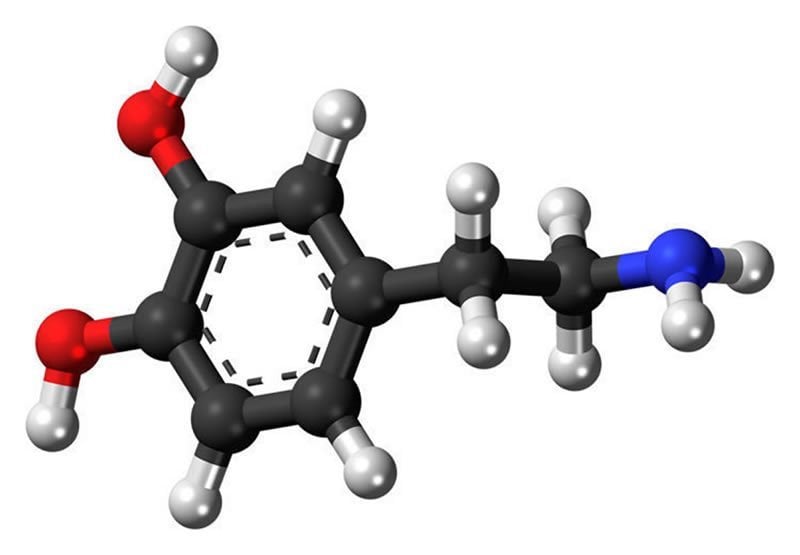Summary: Novelty directly activates the dopamine system and enhances associative learning. The findings have implications for the development of new machine learning technologies and educational strategies.
Source: VIB
Brain scientists led by Sebastian Haesler (NERF, empowered by IMEC, KU Leuven and VIB) have identified a causal mechanism of how novel stimuli promote learning. Novelty directly activates the dopamine system, which is responsible for associative learning. The findings have implications for improving learning strategies and for the design of machine learning algorithms.
Novelty and learning
A fundamental type of learning, known as associative learning, is commonly observed in animals and humans. It involves the association of a stimulus or an action with a positive or negative outcome. Associative learning underlies many of our every-day behaviors: we reward children for doing their homework, for example, or limit their TV time if they misbehave.
Scientists have known since the 1960’s that novelty facilitates associative learning. However, the mechanisms behind this phenomenon remained unknown.
“Previous work suggested that novelty might activate the dopamine system in the brain. Therefore we thought that dopamine activation might also promote associative learning.” says Prof. Sebastian Haesler, who led the study.
Sniffing out novelty
To demonstrate that novelty indeed activates dopamine neurons, the researchers exposed mice to both new and familiar smells.
“When mice smell a novel stimulus, they get very excited and start sniffing very rapidly. This natural, spontaneous behavior provides a great readout for novelty perception.” explains Dr. Cagatay Aydin, postdoc in the group of Sebastian Haesler. With the mouse experiments, the team confirmed dopamine neurons were activated by new smells, but not by familiar ones.
In a second step, the mice were trained to associate novel and familiar smells with reward.

“When we specifically blocked dopamine activation by novel stimuli in only a few trials, learning was slowed down. On the other hand, stimulating dopamine neurons during the presentation of familiar stimuli accelerated learning.” says Joachim Morrens, PhD student in the group.
The value of novelty
The findings demonstrate that dopamine activation by novel stimuli promotes learning. They further provide direct experimental support for a group of theoretical frameworks in computer science, which incorporate a ‘novelty bonus’ to account for the beneficial effect of novelty. Incorporating such a bonus can speed up machine learning algorithms and improve their efficiency.
From a very practical perspective, the results remind us to break our routine more often and seek out novel experiences to be better learners.
Funding: Funding came from HFSP, EC Marie Curie and FWO.
Source:
VIB
Media Contacts:
Katrina Wright – VIB
Image Source:
The image is in the public domain.
Original Research: Closed access
“Cue-evoked dopamine promotes conditioned responding during learning”. Morrens et al.
Neuron doi:10.1016/j.neuron.2020.01.012.
Abstract
Cue-evoked dopamine promotes conditioned responding during learning
Highlights
• Inconsequential novel, but not familiar, stimuli activate VTA and SNc dopamine neurons
• Intrinsic stimulus value modulates dopamine responses to novel stimuli
• Dopamine activation during familiar CS accelerates conditioning
• Dopamine inhibition during novel CS decelerates conditioning
Summary
Dopamine neurons mediate the association of conditioned stimuli (CS) with reward (unconditioned stimuli, US) by signaling the discrepancy between predicted and actual reward during the US. Some theoretical models suggest that learning is also influenced by the salience or associability of the CS. A hallmark of CS associability models is that they can explain latent inhibition, i.e., the observation that novel CS are more effectively learned than familiar CS. Novel CS are known to activate dopamine neurons, but whether those responses affect associative learning has not been investigated. Here, we used fiber photometry to characterize dopamine responses to inconsequential familiar and novel stimuli. Using bidirectional optogenetic modulation during conditioning, we then show that CS-evoked dopamine promotes conditioned responses. This suggests that Pavlovian conditioning is influenced by CS dopamine, in addition to US reward prediction errors. Accordingly, the absence of dopamine responses to familiar CS might explain their slower learning in latent inhibition.






